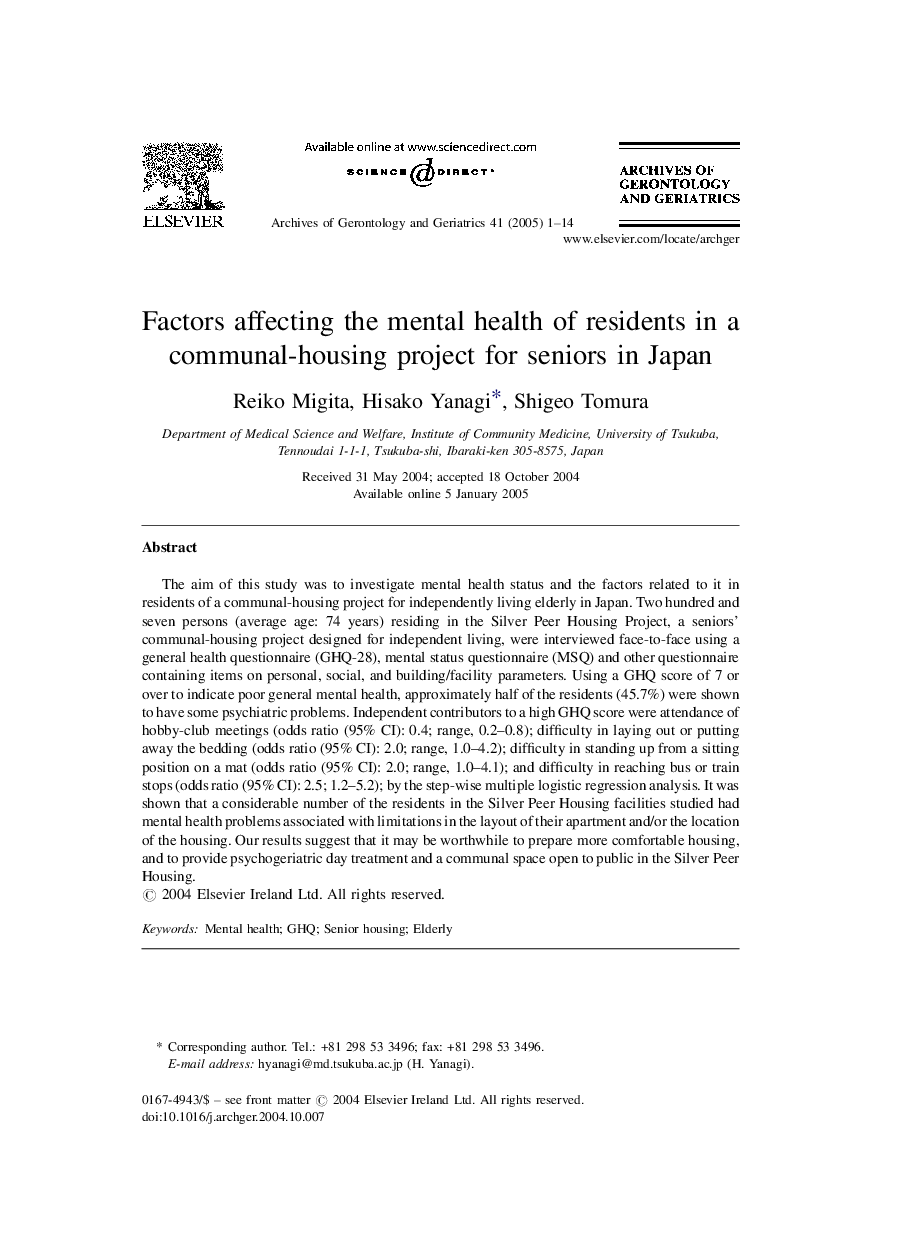| Article ID | Journal | Published Year | Pages | File Type |
|---|---|---|---|---|
| 9878904 | Archives of Gerontology and Geriatrics | 2005 | 14 Pages |
Abstract
The aim of this study was to investigate mental health status and the factors related to it in residents of a communal-housing project for independently living elderly in Japan. Two hundred and seven persons (average age: 74 years) residing in the Silver Peer Housing Project, a seniors' communal-housing project designed for independent living, were interviewed face-to-face using a general health questionnaire (GHQ-28), mental status questionnaire (MSQ) and other questionnaire containing items on personal, social, and building/facility parameters. Using a GHQ score of 7 or over to indicate poor general mental health, approximately half of the residents (45.7%) were shown to have some psychiatric problems. Independent contributors to a high GHQ score were attendance of hobby-club meetings (odds ratio (95% CI): 0.4; range, 0.2-0.8); difficulty in laying out or putting away the bedding (odds ratio (95% CI): 2.0; range, 1.0-4.2); difficulty in standing up from a sitting position on a mat (odds ratio (95% CI): 2.0; range, 1.0-4.1); and difficulty in reaching bus or train stops (odds ratio (95% CI): 2.5; 1.2-5.2); by the step-wise multiple logistic regression analysis. It was shown that a considerable number of the residents in the Silver Peer Housing facilities studied had mental health problems associated with limitations in the layout of their apartment and/or the location of the housing. Our results suggest that it may be worthwhile to prepare more comfortable housing, and to provide psychogeriatric day treatment and a communal space open to public in the Silver Peer Housing.
Related Topics
Life Sciences
Biochemistry, Genetics and Molecular Biology
Ageing
Authors
Reiko Migita, Hisako Yanagi, Shigeo Tomura,
